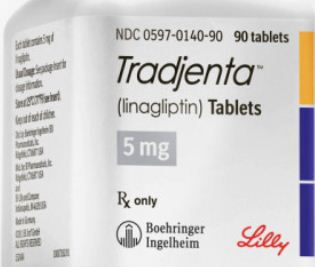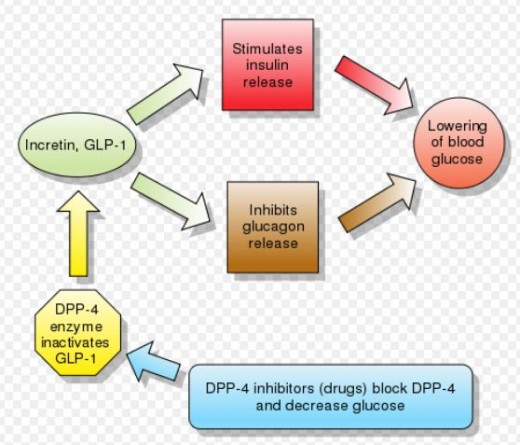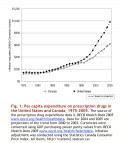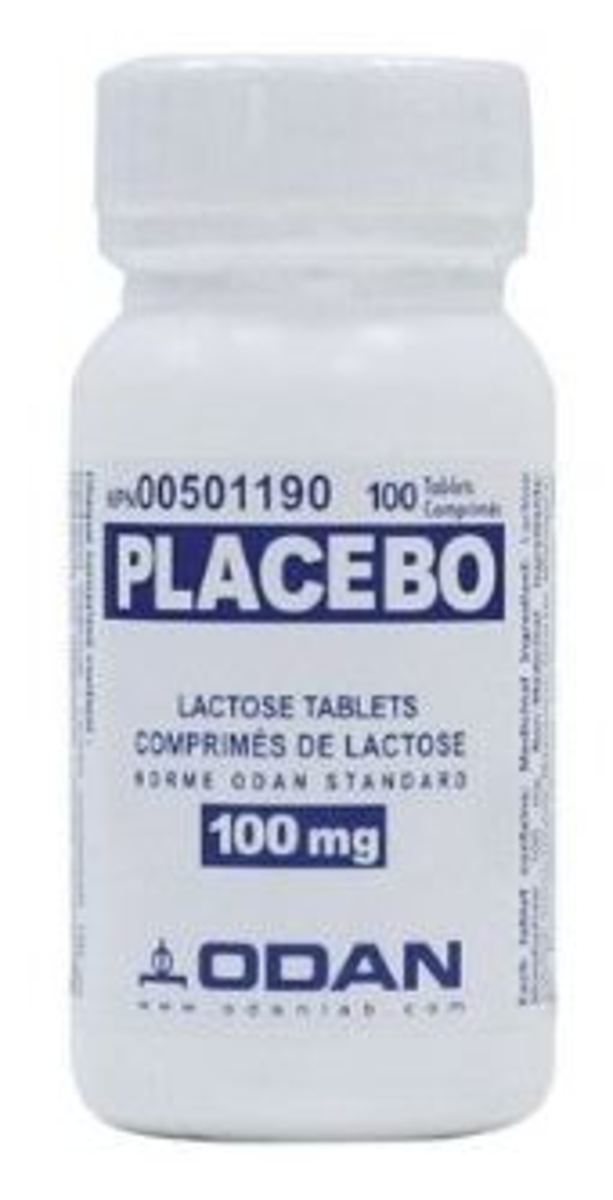WHAT ARE DPP4 INHIBITORS?
Type II Diabetes and DPP4 Inhibitors
DPP4 inhibitors are a relatively new family of prescription medication used to treat Type II Diabetes, a condition which causes abnormally high blood sugar levels, eventually leading to serious complications and consequences. The need for effective treatments for diabetes is great. It is the 7th leading cause of death in the U.S. About 8% of our U.S. population has diabetes. Over 90% of patients diagnosed with diabetes have Type II diabetes, a form of diabetes in which the body still produces insulin, yet cannot efficiently manage blood sugar levels.
An interesting fact: Type II diabetes is actually caused by a genetic mutation. Although being overweight often triggers this disease, people with normal weights can still become diabetic. Additionally, it is possible for some people to be very overweight and NOT develop type II diabetes because they do NOT have this particular genetic mutation.
This article is about 1 particular family of medications used to treat Type II Diabetes: DPP4 Inhibitors. If you have been prescribed a DPP4 Inhibitor for your diabetes, or you are discussing the possibility of taking a DPP4 inhibitor, this article should help give you an idea of:
- What DPP4 inhibitors are
- How DPP4 inhibitors work and finally
- How to take a DPP4 inhibitor safely and effectively to manage your Type II diabeties
WHAT IS A DPP-4 INHIBITOR?
DPP stands for DiPeptidyl Peptidase. Those with a little biology background might reckognize the "ase" ending and figure out that this is an enzyme. Dipeptidyl Peptidase is just one of hundreds of enzymes that our body naturally manufactures.
We need enzymes. Without enzymes our bodies would not function: we could not see, think, breathe, walk, taste, digest or pretty much anything else. Enzymes are our friends. DPP-4 is a specific and important type of of Dipeptidyl Peptidase.
However all good enzymes, like good stories, must come to an end. That is where our DPP4 inhibitors come in. DPP-4 inhibitors are prescription drugs specifically responsible for reducing the effectiveness of DPP4. They inhibit this enzyme.
There are currently 3 different prescription DPP-4 inhibitors, as well as several "combinations" of these drugs with other medications. First I will introduce the individual DPP4 inhibitors, then I will introduce the "combination" products.
PRESCRIPTION DPP-4 INHIBITORS:

1. JANUVIA (sitagliptan): A product of Merck Pharmaceuticals, Januvia was first introduced to the U.S. market back in October of 2006. Januvia is a tablet and may be taken alone, or in combination with other medications used to treat type II diabetes. Januvia is taken once daily.
Januvia comes in 3 strengths: 25mg, 50mg and 100mg.
Januvia can be taken with or without food, but should be taken at the same time daily.
Side Effects: DPP-4 inhibitors tend to be well tolerated. The most common side effects with Januvia in clinical trials were infection and headache. As with all DPP-4 inhibitors, patients taking Januvia should continue to watch their diet and exercise to help maintain proper blood sugar levels. Also, patients should be aware of the potential risk of something called acute pancreatitis (inflammation of the pancrease). Symptoms of this condition include severe abdominal pain and vomiting.

2. ONGLYZA (saxagliptin): A product of Bristol-Myers Squibb, Onglyza was granted FDA approval in July of 2009. Onglyza is a tablet that may be taken alone or in combination with other medications to treat Type II Diabetes. Onglyza is taken once daily.
Onglyza comes in 2 strengths: 2.5mg and 5mg.
Onglyza may be taken with or without food, but should be taken at the same time daily.
Side Effects: Possible side-effects with Onglyza include infection and headache. Patients taking Onglyza should be aware of the symptoms of pancreatitis, as this is a rare but possible side effect. Symptoms of pancreatitis include severe abdominal pain and vomiting.

3. TRADJENTA (linagliptin): The most recent DPP-4 inhibitor to get the nod of approval from the FDA is Tradjenta. Tradjenta is manufactured by Eli Lilly and was approved in May of 2011. Tradjenta may be used alone, or in combination with 1 or more other medications to lower blood sugare levels in Type II diabetics.
Tradjenta is available as a 5mg oral tablet.
Tradjenta should be taken once daily, at the same time, with or without food.
Side Effects: The most common side effect with Tradjenta has been sinus infection (about 7.5% of patients). Other side effects, more likely when combined with other medications, include cough, weight gain, increased triglycerides and headache.
DPP-4 INHIBITOR COMBINATION PRODUCTS:

Several products are now available to treat Type II Diabetes which combine one of the above DPP-4 inhibitors with another products to lower blood sugar (or, for 1 new product, to lower blood cholesterol).
These combination products are:
1. JANUMET: This is a combination of Januvia and another diabetes medication known as metformin. Janumet is intended for twice daily dosing, with meals, and comes in the following strengths:
- 50mg/500mg
- 50mg/1000mg
2. KOMBIGLYZE XR: This one is a combination tablet of Onglyza (saxagliptin) with metformin as comes in 3 "extended-release" strengths (listed as mg of saxagliptin/metformin). This combination may be taken once daily:
- 5mg/500mg
- 2.5mg/1000mg
- 5mg/1000mg
3. JUVISYNC: This is a combination of Januvia (sitagliptin) and simvastatin (a "statin" drug commonly used to treat high blood cholesterol). Juvisync should be taken once daily, in the evening, and swallowed whole (not crushed or chewed). Juvisync is available in the following strengths (listed as sitagliptin/simvastatin mg):
- 100mg/10mg
- 100mg/20mg
- 100mg/40mg
For more information on "statins" like simvastatin, see my article entitled: WHAT ARE STATINS?

HOW DO DPP4 INHIBITORS WORK?
To understand how DPP4 inhibitors work, I first have to introduce at least one other little lesson from biology: Peptides. Specifically, allow me to introduce you to GLP-1, a very good natured little peptide which helps our body lower blood sugar by stimulating the release of insulin and inhibiting the release of glucagon. This is good. GLP-1 is a part of our bodies "incretin" system for lower blood sugar levels.
GLP-1 however does have an enemy in our body. Well, maybe "enemy" is a strong word. The enemy I am referring to is DPP4, our friend that we learned about a little earlier in this article. DPP4 is responsible for deactivating (so that it can no longer work) GLP-1. Normally that is okay. We wouldn't want too much GLP-1 running around in our body. Our blood sugar might drop too low! So we need DPP4. But sometimes DPP4 gets carried away. So by reducing the amount of DPP4 we can effectively INCREASE the amount of GLP-1. More GLP-1 means our elevated blood sugar gets lower...and that makes all of our organs much happier.
Let my try to now explain it even more simply: DPP-4 inhibitors (like Januvia, Onglyza and Tradjenta) PROMOTE insulin production and OPPOSE glucose production. Both of these are GOOD things for patients with Type II diabetes.
TAKING A DPP-4 INHIBITOR
So, the real question for many patients is this: should I take a DPP-4 inhibitor for my Type II diabetes? I offer the following thoughts as a pharmacist for you to consider. I cannot make this decision for you. You should discuss all of your options carefully with your physician.
On the "GOOD" side:
- DPP-4 Inhibitors tend to be well tolerated
- DPP-4 Inhibitors rarely cause weight gain (a problem with some other diabetes medicine)
- DPP-4 inhibitors do not tend to cause HYPOglycemia (low blood sugar)
On the "NEGATIVE" side:
- DPP-4 Inhibitors are not, generally speaking, more effective than older medications used for treating Type II diabetes
- DPP-4 Inhibitors cost much more. None are currently available generically.
You will need to speak with your doctor about whether a DPP-4 inhibitor is right for you. I hope that the information in this article has given you some helpful insights into what DPP-4 inhibitors are, how they work and how to use them safely and effectively.








